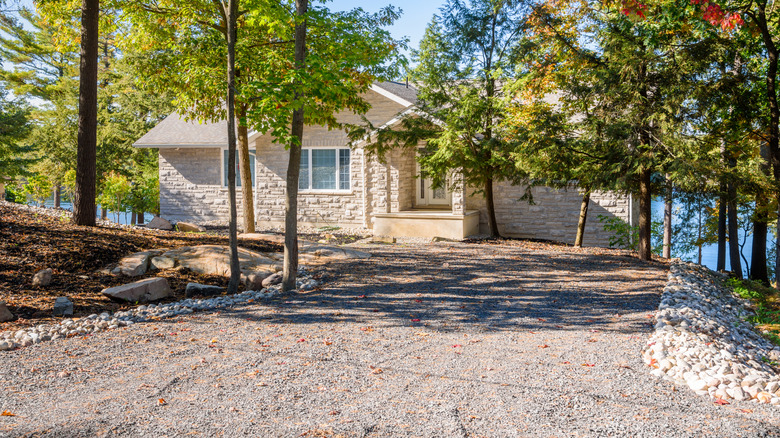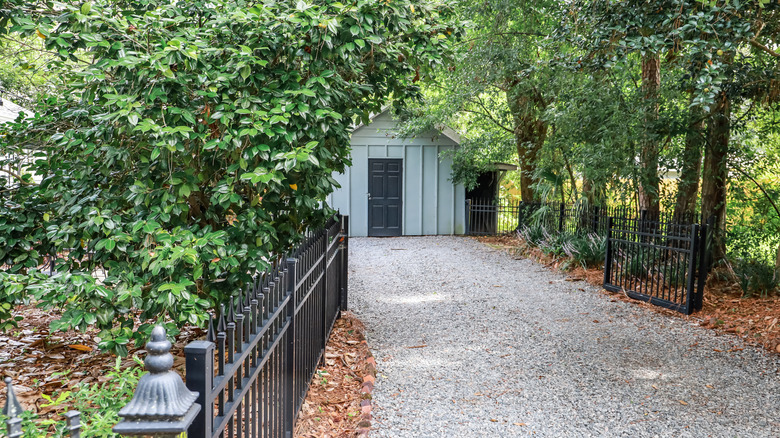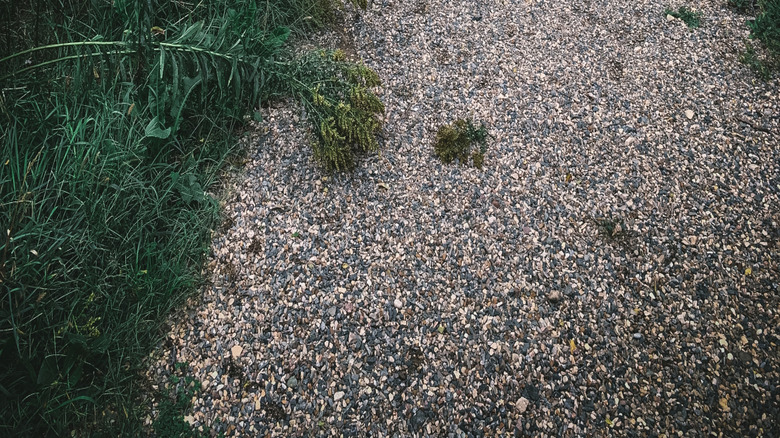The Best Gravel To Choose For Your Driveway (And The One To Avoid)
Your driveway not only provides a much-needed path from the road to your house, but it can make or break your curb appeal. While you may dream of installing asphalt or concrete, these materials can be cost-prohibitive, especially if you have a long driveway. Fortunately, the right type of gravel can also make a good impression and provide the traction you need at a fraction of the price—around $1,800, on average.
Because gravel driveways are long-term investments, the type of gravel you choose should be able to withstand foot and vehicle traffic and your local weather. With that said, the best gravel for driveways is medium-sized (about ¾ inches), angular stones. The angular nature allows these rocks to compact together, creating a stable surface for walking and driving on. Some notable options include quarry process, crushed limestone, blackstar rock, and marble chips. The worst kind of gravel for a driveway is pea gravel, as it's composed of rounded pebbles that become displaced when driven over.
Angular stone is the best choice for a gravel driveway
Many types of angular gravel work well for driveways. One of the more affordable options is quarry process, sometimes called crusher run. In addition to its attractive price point, it's prized for its ability to withstand high traffic. It includes a mix of rock dust and several types of ¾-inch stone, including (but not limited to) granite, trap rock, and gneiss.
Another option, crushed limestone gravel, is more expensive than quarry process but is ideal for proper drainage, as the space between the stones allows water to run through. It's also a good pick for hot climates, since it's typically light in color, reflecting heat rather than absorbing it. (Although it is possible to find darker hues of this dense stone.)
Two of the more decorative-looking driveway gravels include marble chips and blackstar rock. Using marble chips for your driveway comes with a hefty price tag, but this natural stone is durable and offers a luxurious look that complements many house styles. Blackstar rock is an angular-shaped stone with a dark, charcoal-gray color. This low-maintenance stone provides a clean, modern look and can be used in driveway and landscaping applications. However, since it's dark in color, it will absorb heat, making it a better choice for cooler to mild climates.
Smooth, round stones are the worst choice for a gravel driveway
There's no doubt, pea gravel is an aesthetically pleasing stone that can instantly spruce up the look of landscaping when used in place of standard mulch. Unfortunately, these small, rounded rocks don't perform as well in driveways. They can shift under the weight of heavy vehicles and foot traffic. The easy displacement means you'll need to spend more time and money on maintenance. Plus, unlike most other types of driveway gravel, pea gravel tends to become slippery when wet, creating a safety hazard.
If your heart is set on pea gravel, and you're going to use it anyway, there are a couple of steps you can take to keep your gravel driveway secure and locked in place. First, install some type of edging so that when the pea gravel moves around, it doesn't get thrown off the side of the driveway. Secondly, consider securing the gravel with mulch adhesive or a gravel grid to help it stay in place.


